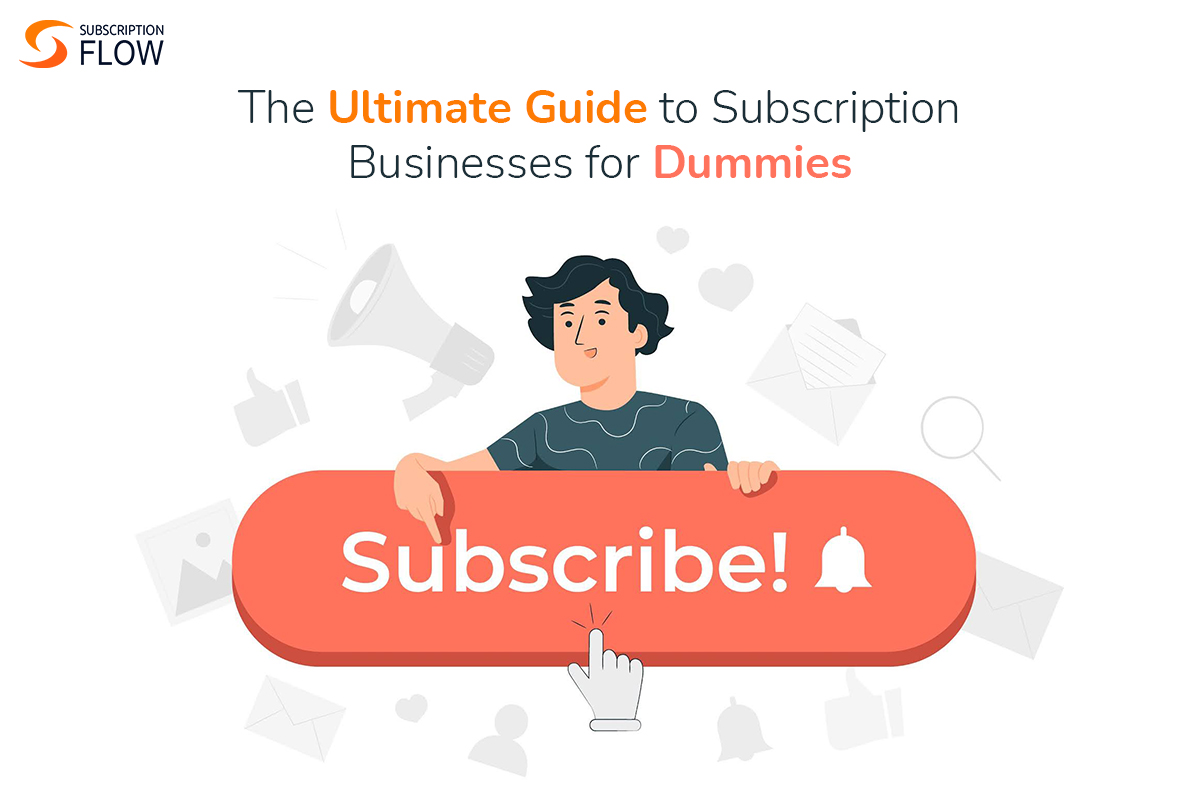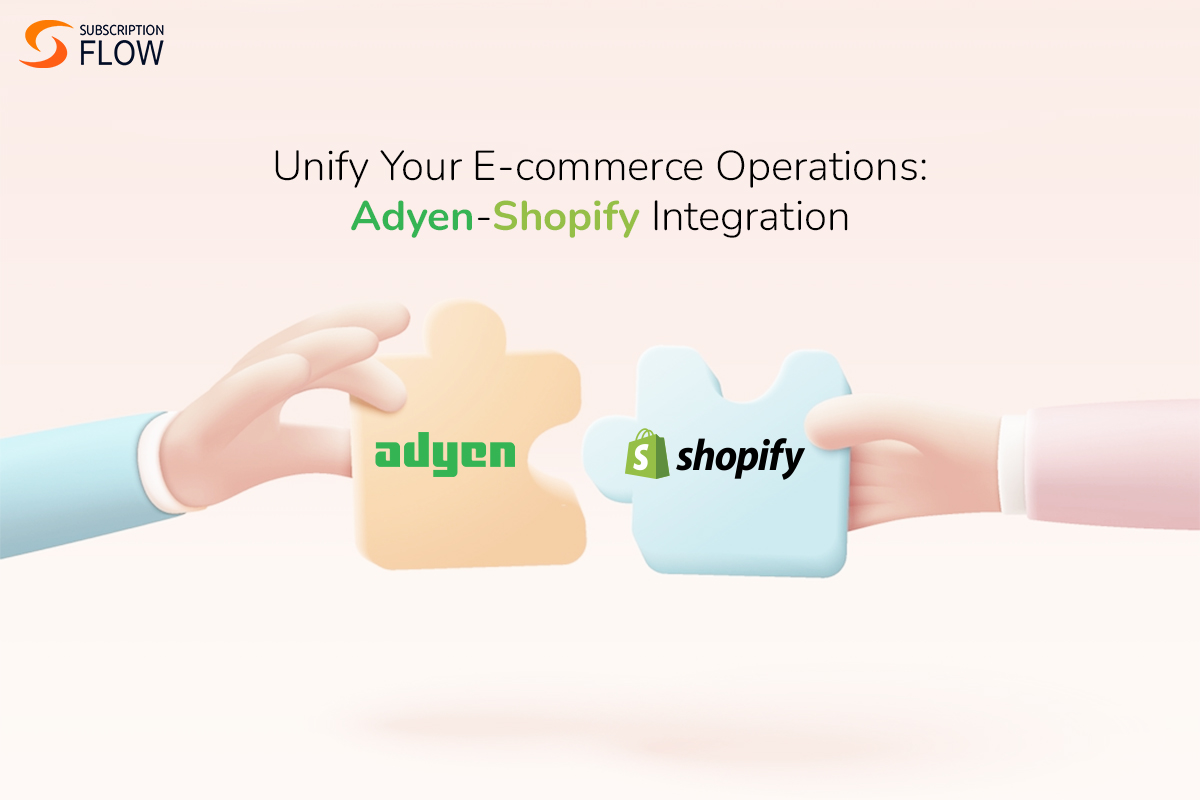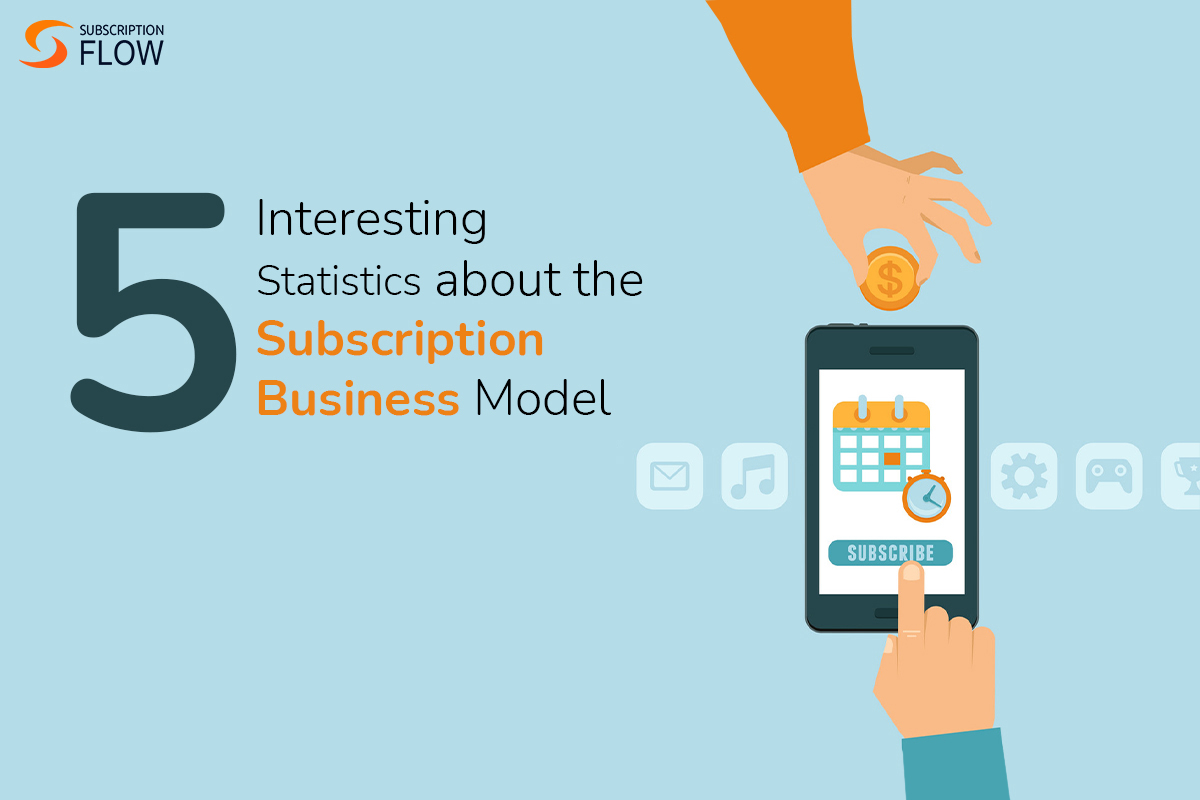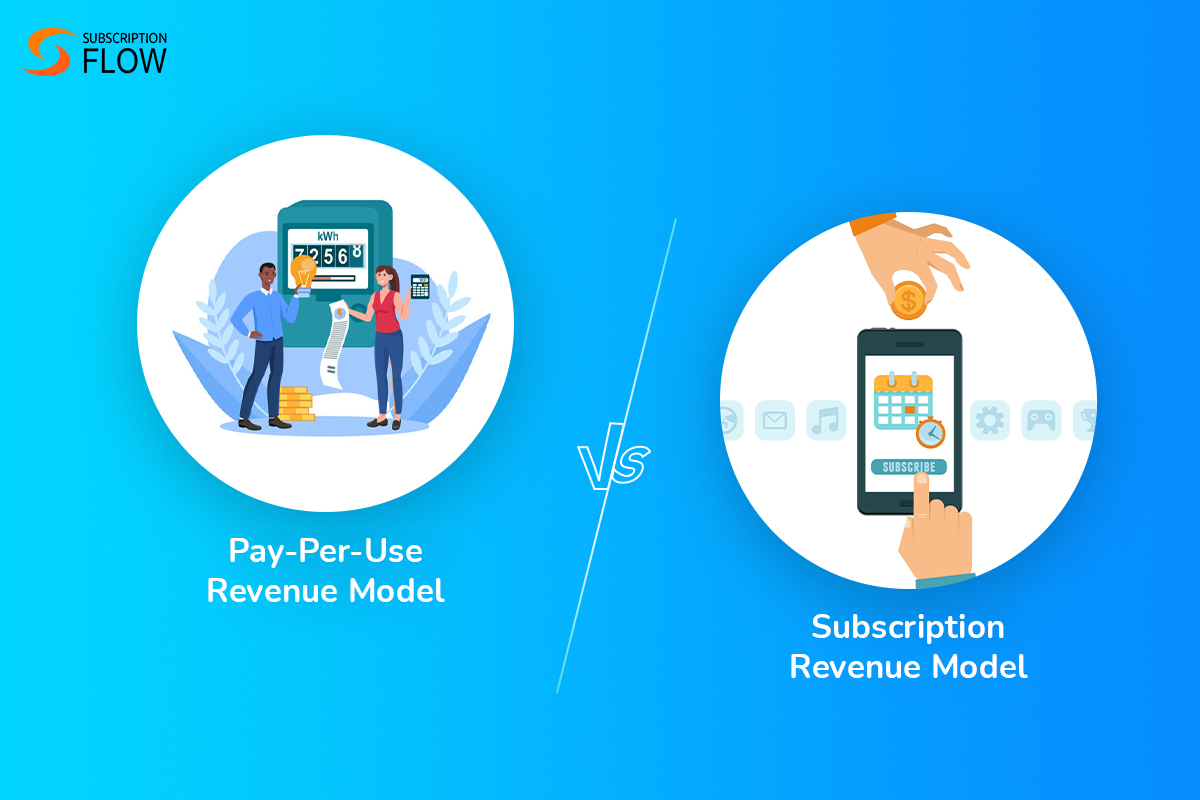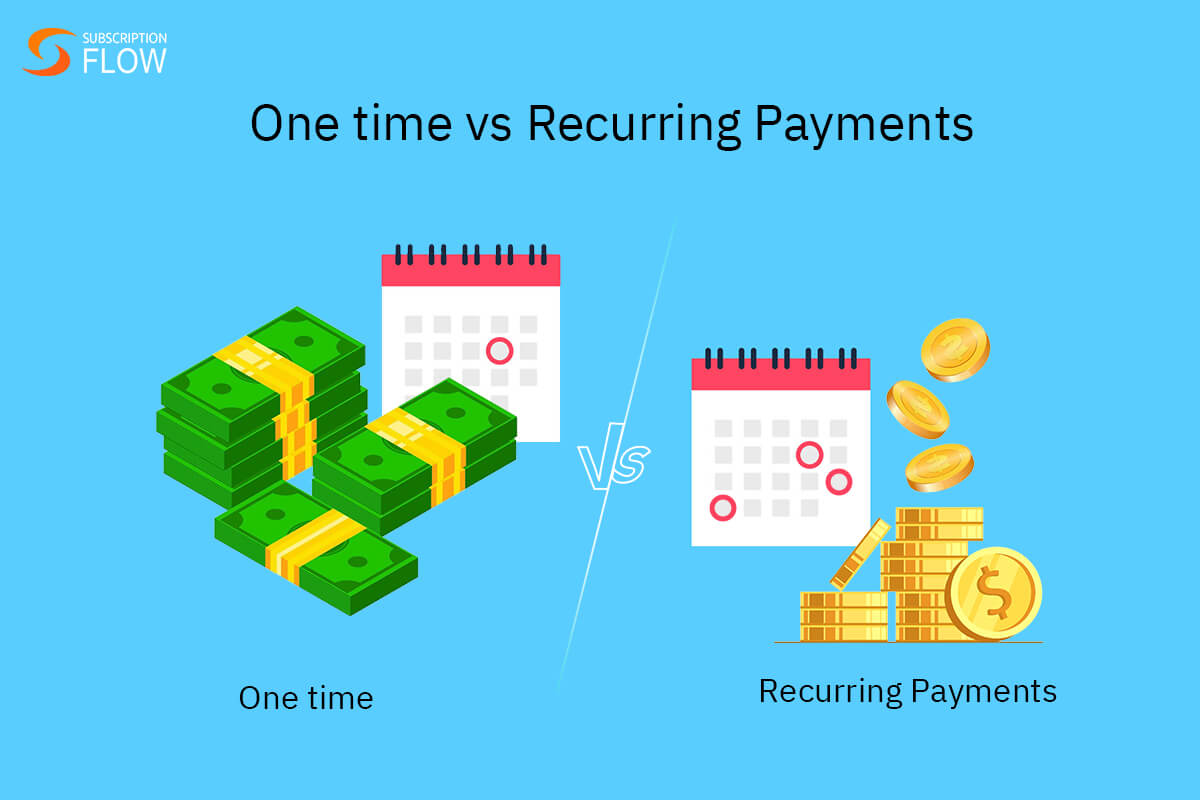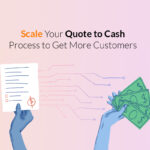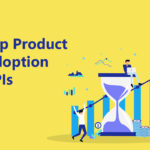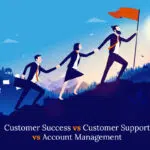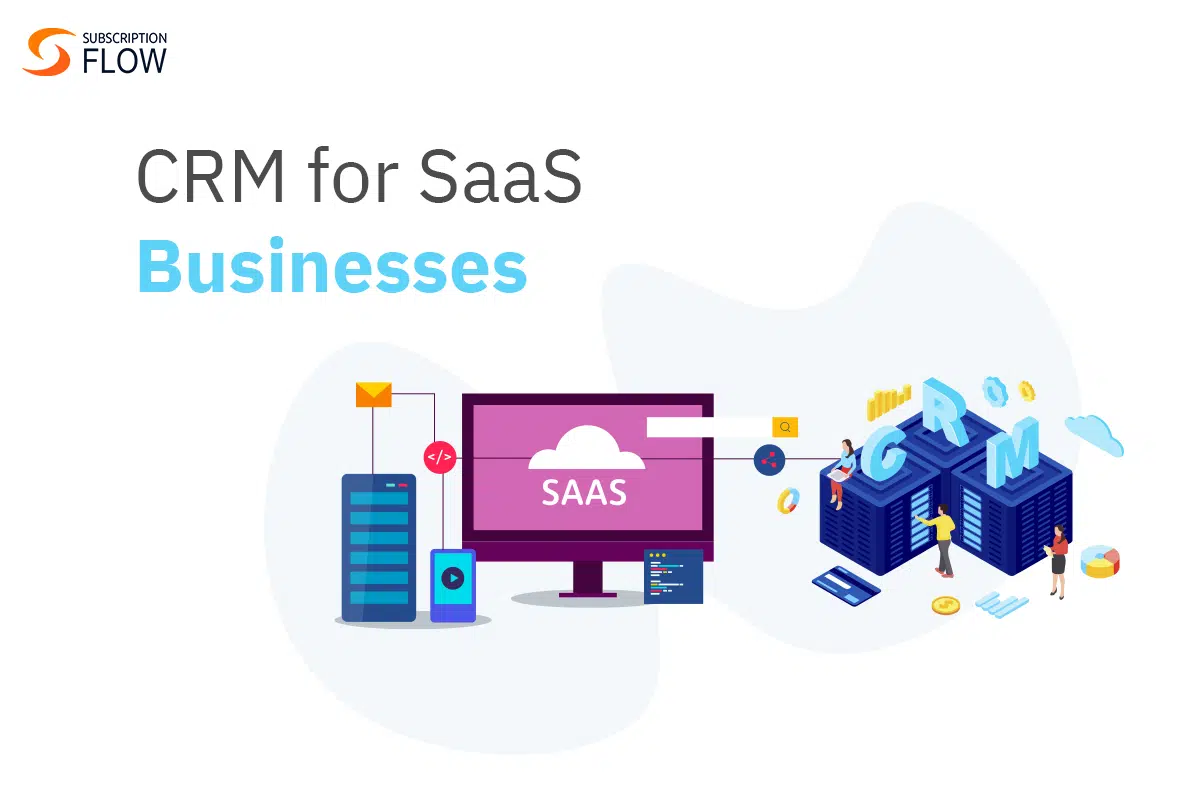
5 Requirements A CRM for SaaS Businesses Should Fulfill
Customer relationship management systems are essential for every business. For SaaS companies, it plays a crucial role in developing a good rapport with clients and streamlining business operations.
When you’re providing software as a service, you must be prepared to handle a multitude of clients with varying requirements.
Regardless of how simple your product/service might be, chances are that each client will have unique needs.
And addressing these needs will entail different services or combinations of such that will need to be recorded and billed accordingly.
For example, many SaaS businesses have customers being onboarded in the middle of the month and that too on a usage-based plan.
Read More: The SaaS Business Model
Managing a large number of such clients can result in repetitive and complicated tasks such as regular invoicing and periodic billing.
Moreover, providing support to each customer is how SaaS companies ensure their brand identity and image in the market.
Therefore, you can’t downplay the significance of choosing the right CRM for SaaS as it can make or break your business.
If you’re in the market for a SaaS CRM, you should know about the 5 features that any good CRM for SaaS will need to have:
5 Features You Need in a SaaS CRM
Customer Data Handling
The first thing you need from a CRM for SaaS is customer data handling. A client relationship management system is only as good as its capability of managing and handling data.
Depending upon your business, you’ll need a robust system that can store data in custom fields. That means you get to define how your data is stored.
Other than the ability to add custom fields, a SaaS CRM should come prepared to safely secure data in an organized manner.
That is to say, any department of your organization should be able to filter through customer data as per their convenience.
Self Service Portal
A self service portal is necessary in order for a CRM for SaaS to be reliable. This is especially true if you’re running a subscription-based revenue model that entails providing regular support to customers.
There are several repetitive tasks in subscription management that can be streamlined and automated with the help of a self-service portal.
A good CRM shouldn’t just be for an organization. It should also provide your customers an overview of their subscription status in addition to giving them options to make changes to their plans.
Read More: Advantages of Offering Self Service Portals for Your Subscribers
For example, once a customer is onboarded after subscribing to your business, they should be given a portal of their own.
Configured to provide a warm greeting upon login and personalized communication upon every action, the portal should also provide easy navigation and option to call in support for technical queries.
This portal can be customized to provide a personalized environment to the user and display any advertisements, add-ons, upgrades or more to upsell your products/services.
The main advantage of having such an interactive CRM for SaaS businesses is twofold. Firstly, you need to empower your customers to take actions for themselves, thereby decreasing the admin’s tasks.
You can’t afford to address each customer’s request to unsubscribe, resubscribe, cancel, upgrade, or downgrade their plans all the time.
Secondly, your CRM can prove to be a viable asset that can be used to monitor your customer’s activity. Every time your users log on to their portals, you’ll be able to see their actions and track their behavior.
Read More: Important SaaS Customer Retention Metrics for Subscription Businesses
With a smart system that can recognize churn activity, you can set reminders and notifications for activity patterns that signal an upcoming cancelation or downgrade.
Payment Processing and Dunning
Processing recurring payments is one of the most difficult tasks in subscription management.
And businesses can no longer afford to have a separate software for recurring billing and another one to manage their clients.
That is why you need a CRM for SaaS business that can offer to replace both of them.
A CRM for SaaS can be customized to include payment processors and gateways to accept payments from around the world.
You can integrate a plethora of payment gateways in a modern day CRM for SaaS businesses and take advantage of the several payment methods they support.
Obviously, with such a robust payment management system, you can customize pricing strategies and go for price localization as well.
Define your billing models depending upon your value metric and charge your customers with metered, usage-based, per-seat, or a flat-fee pricing plan.
You can use a modern CRM to automate all your billing and payment processes.
This also means you can automate the process of creating and customizing invoices for every customer at the start of their billing periods as well.
Moreover, you can set protocols to charge each customer as per their custom plan and send them prorated invoices with your CRM.
Integrations
Apart from payment gateways and processors, modern CRMs allow businesses to integrate several tools and softwares into their dashboards, making it a seamless experience to work with multiple APIs at once.
For example, you can integrate Zapier in your CRM for SaaS and set triggers for events that will execute tasks such as forwarding customer details to support and RevOps departments whenever there’s a hint of customer churn.
Read More: An Incredible Variety of Integrations that SubscriptionFlow offers to SaaS Businesses
Not only can this streamline multiple tasks at once, but it can also improve organizational collaboration and inter-department workflow dramatically.
With a robust CRM that can process payments, you can also choose to integrate accounting tools like QuickBooks and Xero.
These can work together with your CRM and synchronize transaction details, payments, customer data and even credit card information with your accounting tools.
This can help you streamline processes such as payment and accounts reconciliation, to name some.
Other than this, with the help of integrations, you can even use marketing tools such as HubSpot and MailChimp together to streamline marketing strategies.
Since HubSpot can help you identify your buyer persona and analyze customer data to provide insights into the buyer’s journey, you can make use of its technical features by integrating the API to synchronize your data.
Read More: How SubscriptionFlow HubSpot Integration Can Help You Track Customer Journey
And once you have a viable list of potential leads to reach out to, you can use MailChimp and automate the process in its entirety.
All you’ll have to do is have MailChimp integrated with your CRM for SaaS and have the data analyzed by HubSpot synched in MailChimp’s email lists and click send.
Of course, this also means you can set multiple campaigns as active and have your CRM execute all the tasks accordingly.
Data Synchronization and Analytical Reporting
Synchronizing your data across applications and tools is one of the modern needs of every business. There are several applications, softwares and tools in any business’ tech stack that each process data on their own.
This results in the creation of data silos, which means data keeps on piling up in separate databases without being processed by relevant departments.
An example of this can be of your marketing department creating customer data lists for email marketing purposes.
On the other hand, your sales department creates another list of customers that are showing interest by asking queries, requesting demos, etc.
Both of these data sets are important for several departments of your organization.
Read More: Importance of Using Event Data for Your SaaS Marketing Strategies with SubscriptionFlow
However, if each department is creating its own database, you’re bound to create silos that will hinder collaboration and inevitably increase the workload.
Avoiding data silos is incredibly important especially if you’re hoping to get accurate analytics and reports for your business performance.
A good CRM for SaaS businesses should be able to produce specific and detailed reports of aspects such as customer retention, revenue generation, customer lifetime value, churn rate, etc.
Want a Customizable CRM for SaaS Businesses?
Contact SubscriptionFlow, the only CRM for SaaS businesses that offers a fully customizable platform that can address all your business needs.
With the ability to integrate any tool and software you want, this CRM will also address all recurring payment and billing related problems that your business is likely to face.
So, don’t wait up and get in touch with our experts now!

